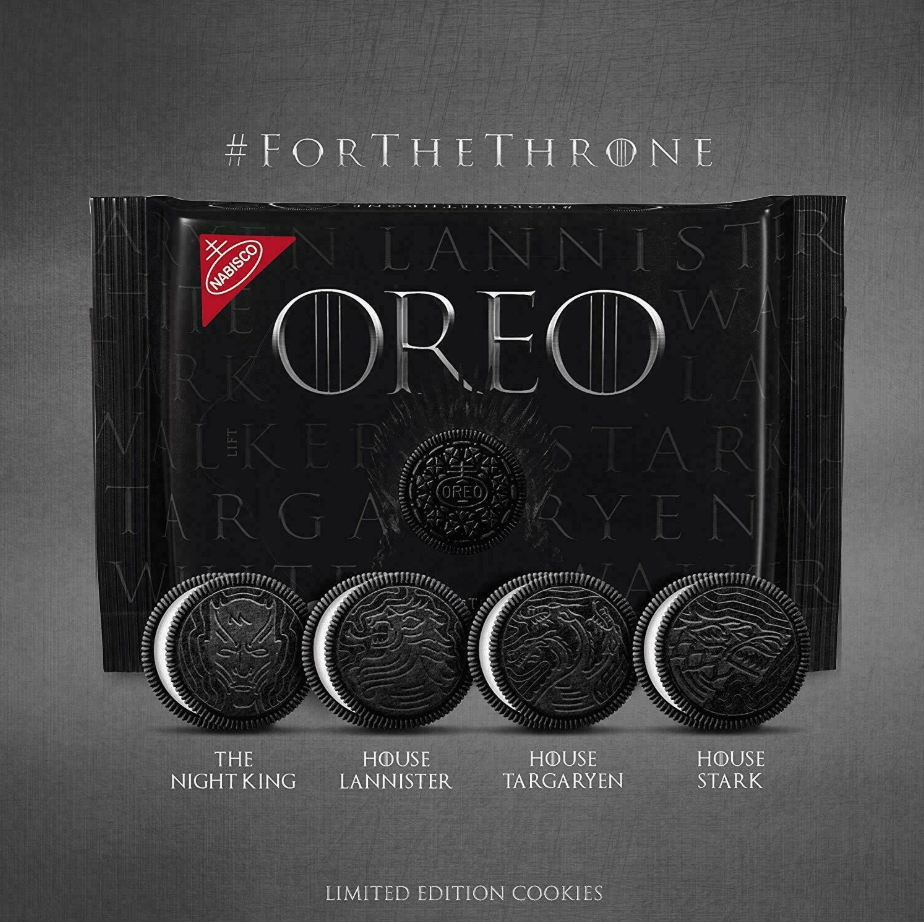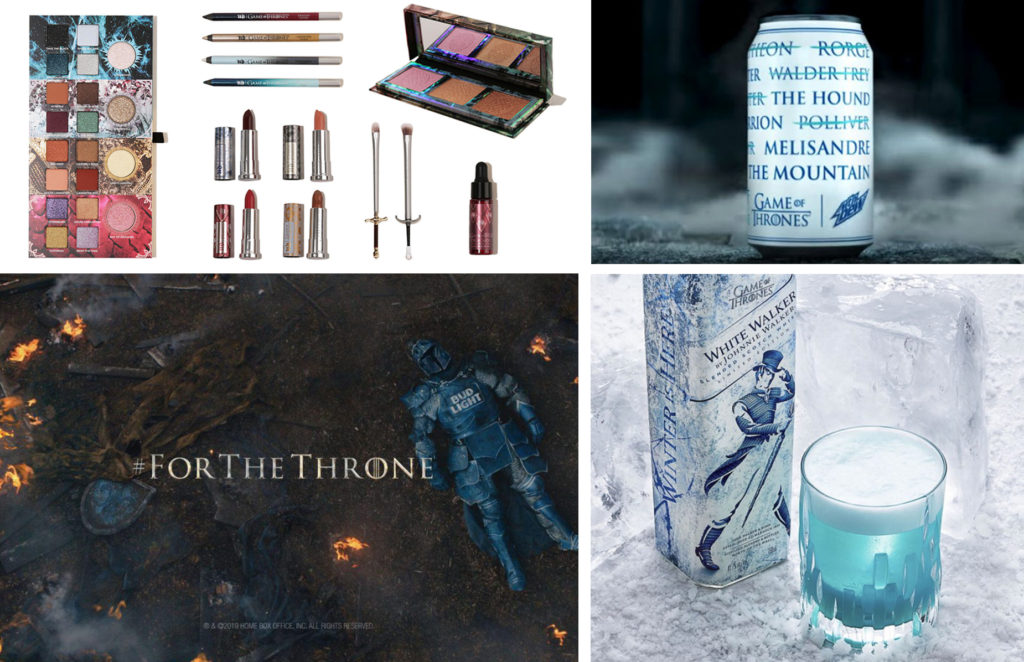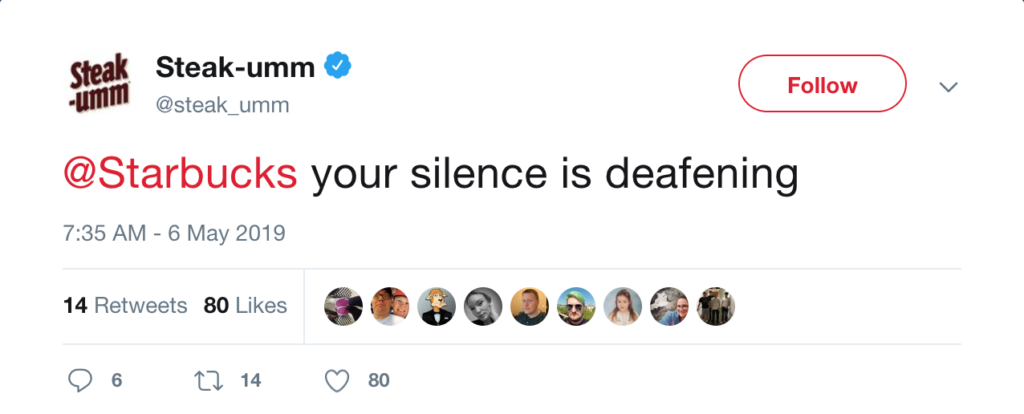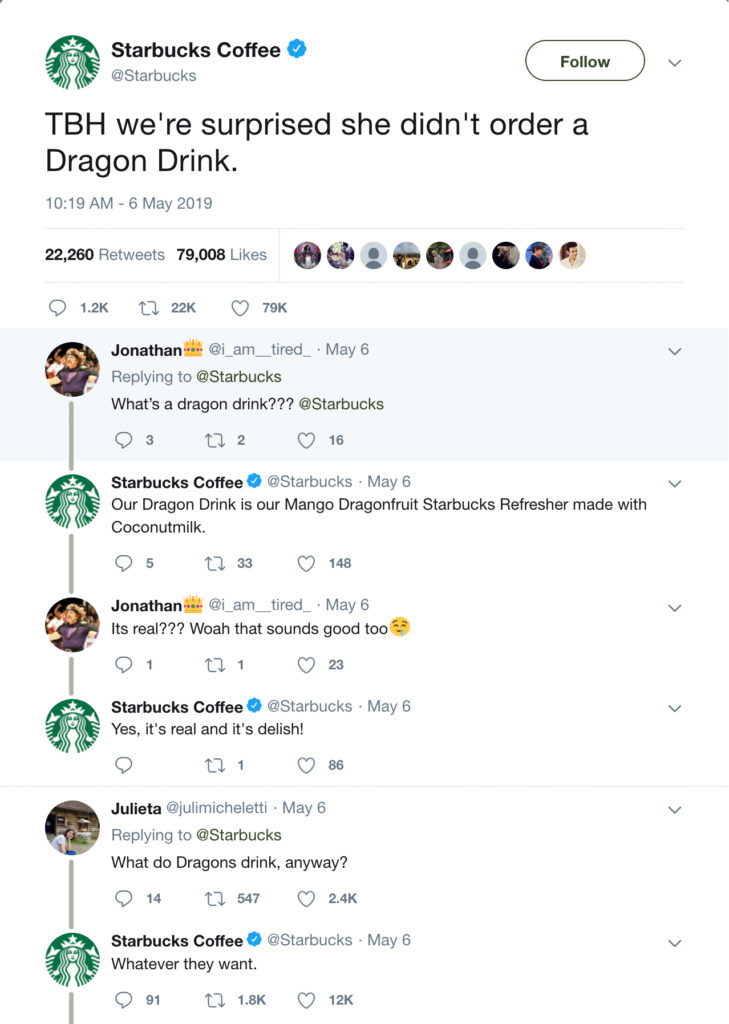Okay, I’ll admit it, I am (or was, tear) a huge Game of Thrones fan. I was one of the 17 million plus people eagerly awaiting the premiere of the series’ eighth and final season. When the day finally arrived a friend came over with something I was not expecting… Oreos. Don’t get me wrong, I like to dunk, but I honestly hadn’t eaten one in about a decade.

It’s no surprise that brands are eager to tie into GOT’s massive audience. The show has been utilizing cross-promotion for years to off-set massively expensive production costs (including a reported $20 million dollar marketing campaign for the final season). Along with Oreo, Johnnie Walker, Bud Light, Urban Decay, and Mountain Dew (to name a few) have all jumped on the Thrones bandwagon.

Sponsors were not the only ones trying to grab a piece of the pie. What are brands with limited advertising budgets to do? Take to Twitter. Practically any brand with a Twitter account was trying to get in on the action. Social media has made audience engagement easier than ever but, it has also made filling up a year’s worth of quality content a difficult task for marketers. Newsjacking and leveraging pop culture are ways to keep a brand relevant while engaging audiences in a meaningful and entertaining way. Let’s face it, an endless stream of product descriptions is not going to keep people visiting a brand’s social media page or attract new customers. Cultural phenomena such as Thrones give brands a relatively risk-free way to join an international conversation. Sure, there are plenty of people who I’m positive were annoyed and even disgusted by all the blatant commodification but at least it was something fun and different that brought people together. Even if that unity was ultimately in shared disappointment.
Personally, I think the big winner in the all of the season 8 Thrones hype would have to be Starbucks. The infamous coffee cup left in episode 4 “The Last of the Starks” resulted in an estimated $2.3 billion in free advertising. It wasn’t even a Starbucks cup! At first, the coffee house stayed quiet but after being goaded by brands such as Steak-umm, Starbucks used the opportunity to market its new Dragon Drink.


Now, will I go out tomorrow and buy more Oreos? Not likely. But, I do have to say, the childhood favorite is now back on my radar. Wasn’t that the point?
References
Bradley, D. (2019). 5 million tweets and counting: A Twitter VP’s top takeaways from ‘Game of Thrones’ mania. PRWEEK. Retrieved from https://www.prweek.com/article/1582283/5-million-tweets-counting-twitter-vps-top-takeaways-game-thrones-mania
Czarnecki, S. (2019). Steak-umm says Starbucks’ silence on ‘Game of Thrones’ coffee cup matter is ‘deafening.’ PRWEEK. Retrieved from https://www.prweek.com/article/1583769/steak-umm-says-starbucks-silence-game-thrones-coffee-cup-matter-deafening
Ehrenberg, N. (2014). Beyond newsjacking: Pop culture in content marketing with movies, TV and memes. TopRank Marketing. Retrieved from https://www.toprankblog.com/2014/04/pop-culture-content-marketing/
Ellis, E. G. (2019). Game of Thrones marketing is spreading like greyscale. Wired. Retrieved from https://www.wired.com/story/game-of-thrones-marketing/
Jones, L. (2018). Why jumping on the brandwagon doesn’t always pay off. BrandContent. Retrieved from https://brandcontent.co.uk/outfoxed/why-jumping-on-the-brandwagon-doesnt-always-pay-off/
McCarthy, J. (2019). Game of Thrones final season: HBO brand partners get creative. The Drum. Retrieved from https://www.thedrum.com/news/2019/04/10/game-thrones-final-season-hbo-brand-partners-get-creative

20 Responses to #ForTheBrandwagon